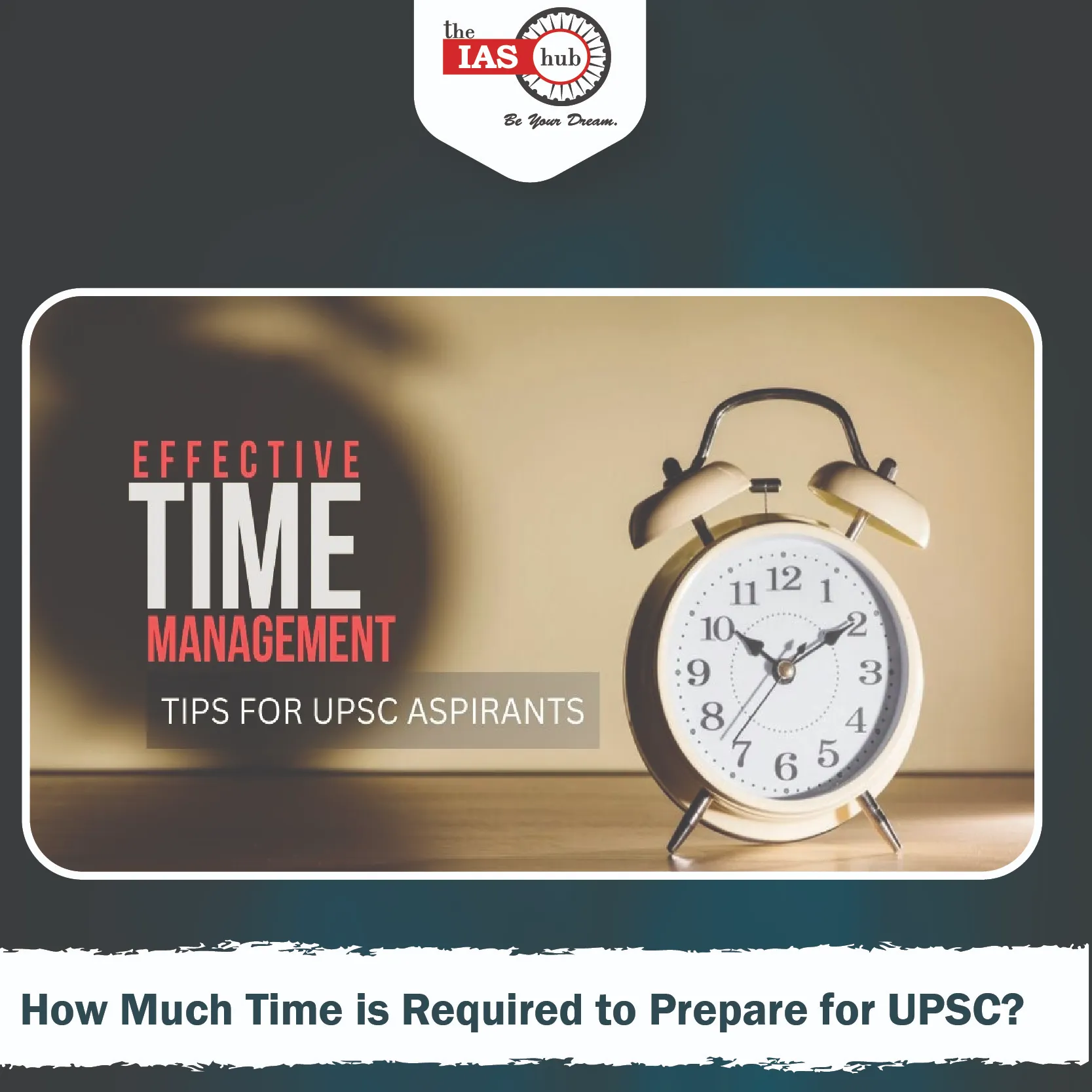Discover how much time is required to prepare for UPSC with this detailed guide. Learn about key factors affecting preparation time, study plans for UPSC Exam.


Preparing for the UPSC Civil Services Examination (CSE) is a long and challenging journey. Many aspirants wonder how much time is needed to prepare for UPSC effectively. The answer depends on factors such as the candidate’s background, dedication, and study plan. Some aspirants clear the exam in one year, while others may take two or more years. UPSC has released the notification for the UPSC 2025 exam on January 22, and the UPSC Prelims exam is scheduled for May 25. This article provides a complete guide to understanding the time required for UPSC preparation and how to plan effectively.
The UPSC Exam is one of the toughest exams in India. It has three stages: Prelims, Mains, and the Interview. The preparation time varies for different aspirants based on their knowledge, strategy, and consistency. While some clear the exam in one attempt, others may take multiple attempts. On average, serious preparation takes around 12 to 18 months, but it is possible to crack the exam with the right approach and dedication.
The time required for UPSC preparation depends on several key factors. Some candidates may require more time based on their background, while others might complete their preparation faster. Below are the factors that influence the preparation time:
The Prelims exam consists of two papers: General Studies (GS) Paper I and the Civil Services Aptitude Test (CSAT). It serves as the screening test for Mains. A structured study plan for Prelims should include:
The UPSC Mains exam is a written examination that tests a candidate’s in-depth knowledge of various subjects. It comprises nine papers, including an Essay, four General Studies (GS) papers, two Optional Subject papers, and two language papers (qualifying in nature). Candidates need to focus on analytical skills, conceptual clarity, and answer-writing practice. The preparation strategy should include:
The final stage is the Personality Test (Interview), which tests a candidate’s communication skills, confidence, and knowledge of current affairs. Preparation includes:
A general timeline for UPSC preparation is as follows:
Are you preparing for UPSC 2025? Join IAShub’s UPSC coaching batches to boost your preparation. Enroll now!
The 7/5/3 rule in UPSC is a general guideline that suggests a structured timeline for exam preparation. It recommends spending 7 months for Prelims preparation, 5 months for Mains preparation, and 3 months for Interview preparation.
Yes, one year is enough if a candidate follows a disciplined study plan, covers the syllabus, practices answer writing, and revises effectively.
No, 25 is not too late for IAS preparation. The upper age limit for the General category is 32 years, giving candidates multiple attempts.


Refine your answer writing skills and elevate your UPSC preparation with personalized support and expert feedback.
Fill out the form to get started with the program or any other enquiries !








Are you dreaming of becoming an IAS officer? Then, IAShub can be your best guide. It is one of the Best IAS Coaching in Delhi. Many students who want to clear the UPSC exam join IAShub for learning. The institute gives both online and offline classes. Their teachers are experienced and helpful. They easily explain every topic. Students also get notes, tests, and tips to do well in the exam.
IAShub is in Delhi and is trusted by many UPSC students. It offers coaching for every part of the UPSC exam – Prelims, Mains, and Interview. The classes are simple and easy to understand. The teachers are experts and guide students in the right way. IAShub is also known for its helpful notes, test series, and answer-writing practice. IAShub is the best coaching in Delhi and also gives UPSC Online Classes. This helps students from any place in India to learn. The online classes are live and also recorded. So, students can watch them anytime. These classes cover the full UPSC syllabus.
Here are some important services provided by IAShub:
The UPSC Civil Services Exam has three parts:
This exam is tough, but with the right guidance, it becomes easy to manage. Students must study smart and stay regular.
IAShub supports students from the beginning to the end. It gives the right books, tests, and notes. The classes are easy to follow, and the teachers are always ready to help. Students get personal doubt sessions too. The test series and answer checking help students learn where they need to do better. Also, free study materials save time and money.
IAShub also guides students during the final stage – the interview. Experts take mock interviews and give useful tips. This full support makes IAShub one of the best IAS coaching in Delhi.
